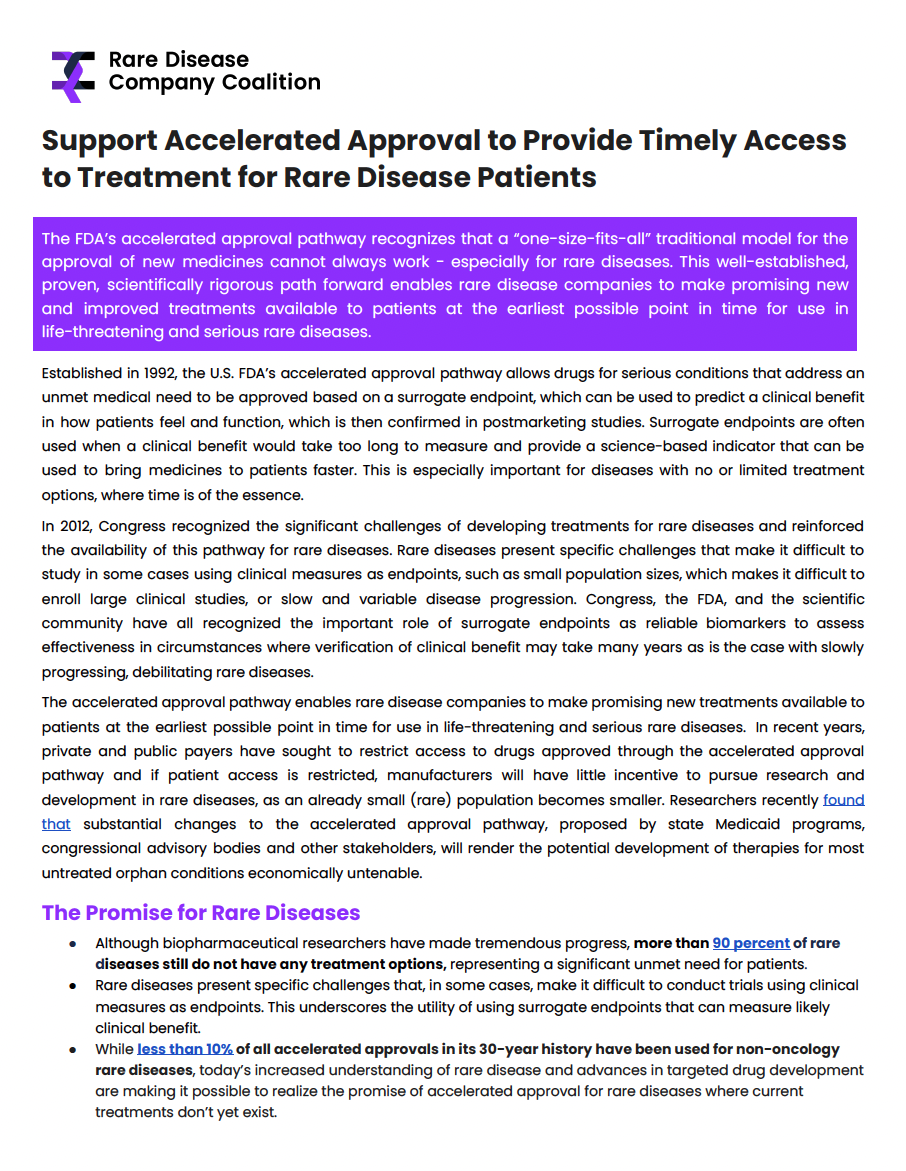News
New Study Finds Patient Access to Rare Disease Drugs Would Decline Sharply Under Proposals to Limit Medicaid Reimbursements
A recent study finds that FDA’s accelerated approval pathway can lead to faster drug development and more treatment options for patients with rare diseases that are difficult to study. Once a drug obtains FDA approval – whether through a traditional or accelerated approval pathway, patients can access the therapies through Medicaid benefits, saving lives and easing the medical burdens of many.
However, suggested proposals to limit reimbursements for accelerated approval therapies within Medicaid would limit access to—and threaten the future development of—orphan drugs that rely on this trusted pathway for viability. These proposed policy changes would cause both immediate and lasting harm to the rare disease community – and disincentivize future use of the valuable pathway for certain rare diseases.
RDCC calls on Congress to reject these unfounded proposals and instead support policies that would promote greater patient access to FDA-approved therapies.
Read more about the study’s findings and how to protect accelerated approval for rare disease treatments in this overview.
